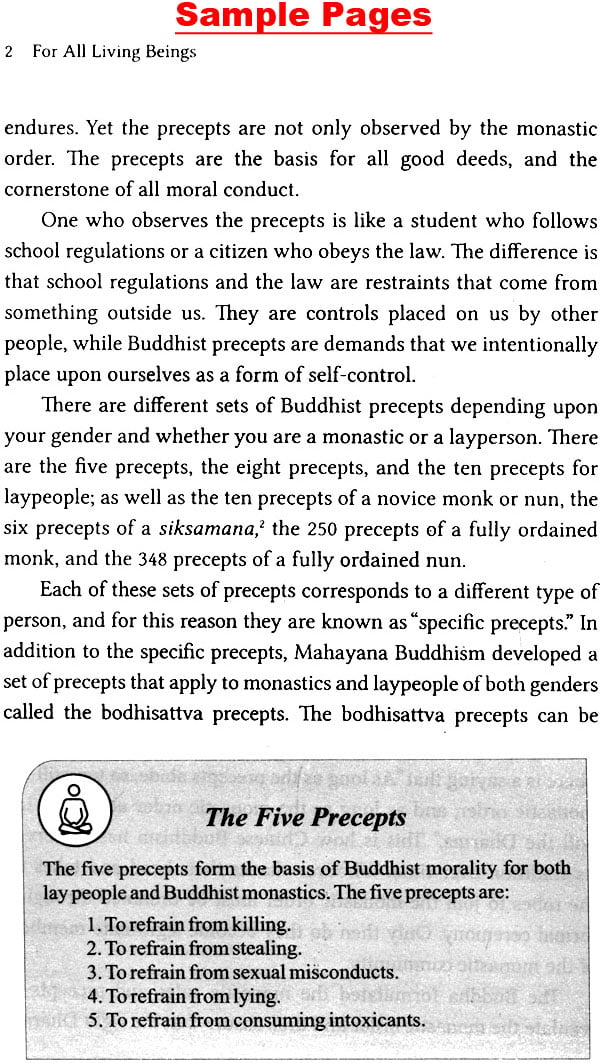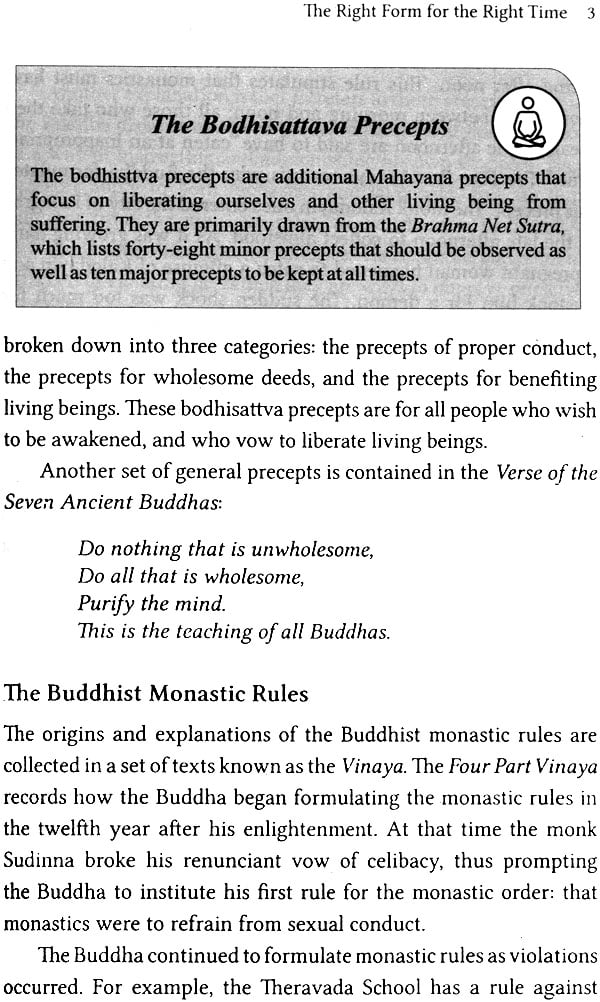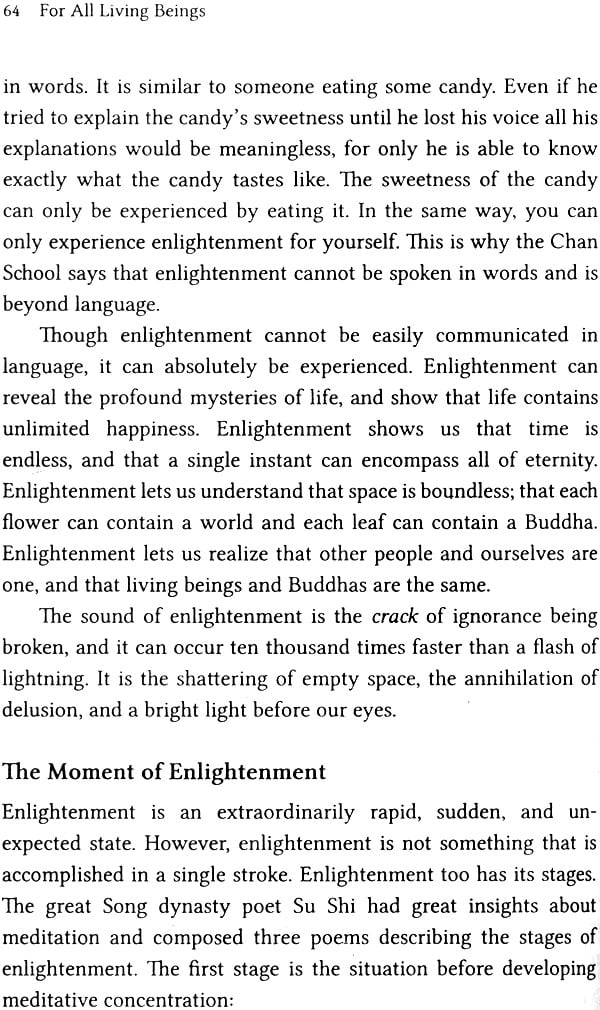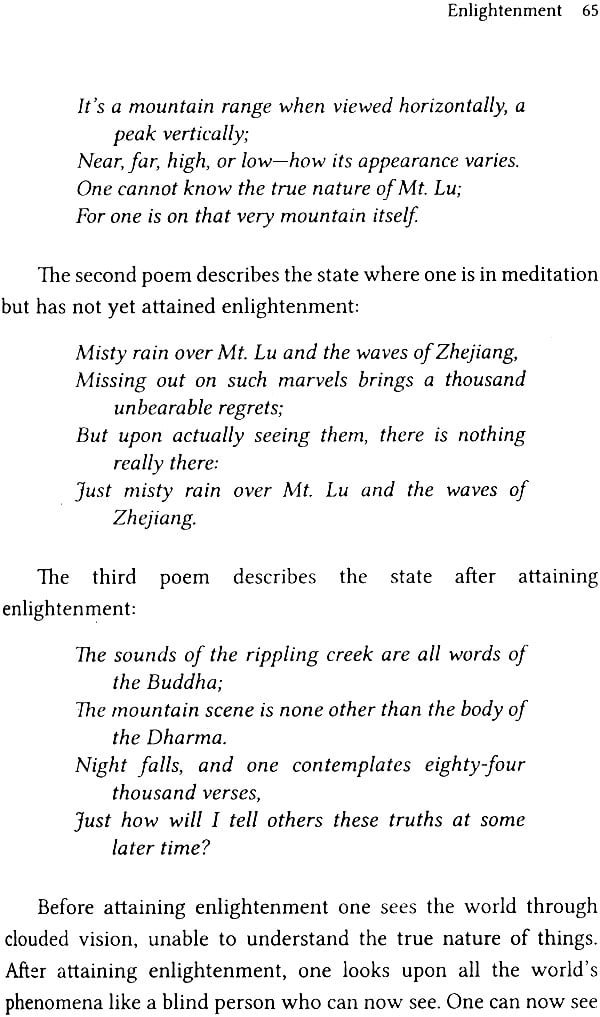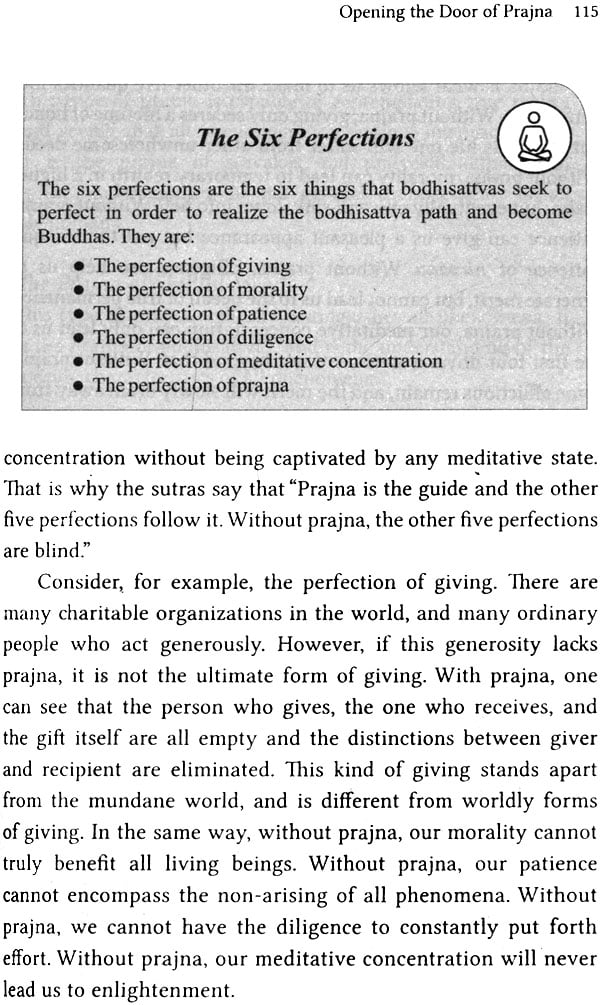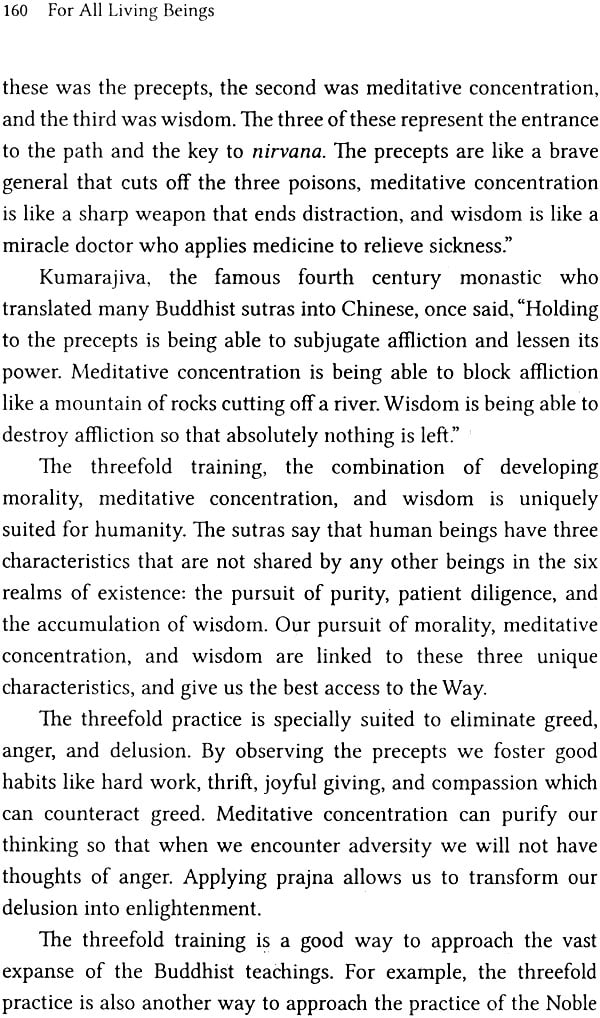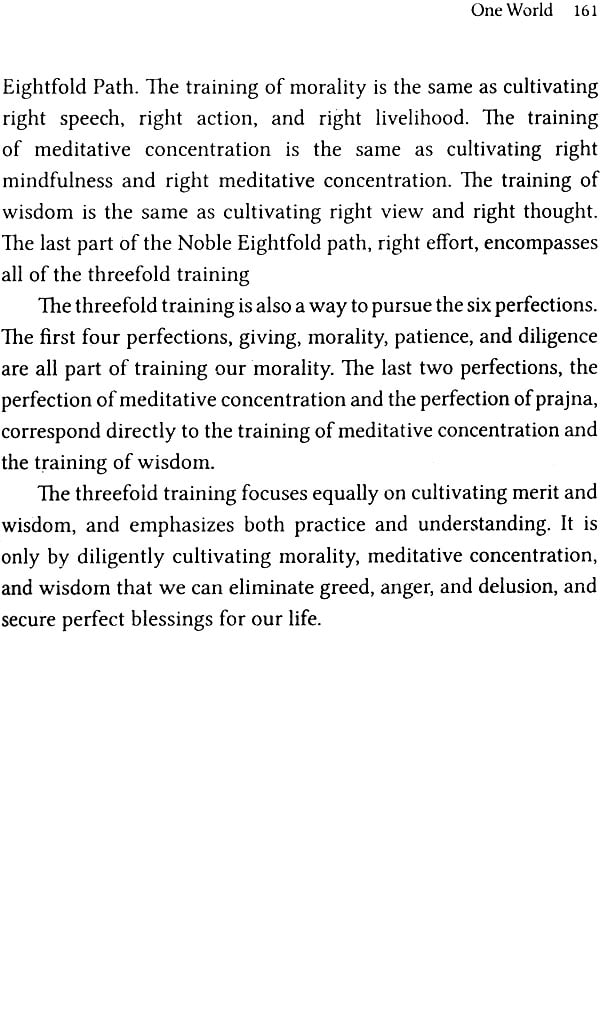
For All Living Beings - A Guide to Buddhist Practice
Book Specification
| Item Code: | NAK282 |
| Author: | Robert H. Smitheram |
| Publisher: | Buddha Light Art and Living Pvt Ltd |
| Language: | English |
| Edition: | 2009 |
| ISBN: | 9788192302034 |
| Pages: | 195 |
| Cover: | Paperback |
| Other Details | 8.5 inch X 5.5 inch |
| Weight | 230 gm |
Book Description
In For All Living Beings, Venerable Master Hsing Yun shows us that the path to a life that is whole some, peaceful, and filled with wisdom starts with helping others. With humor and a love of storytelling For All Living Beings teaches us how doing the right thing can make us free, how meditation can open the mind, and how wisdom can enter every part of our lives and lead us to enlightenment.
Venerable Master Hsing Yun has been a Buddhist monk for over sixty years and has spent his life as a monastic working to promote Humanistic Buddhism. He is the founder of the Fo Guang Shan Buddhist Order which has branch temples throughout Asia, Australia, Europe, Africa, and the Americas. He is the author of many works including Being Good and Chan Heart, Chan Art.
In Buddhism, when a young man enters the monastic order as a novice monk he is called a qinxi. Qin means "diligence," and indicates that he will diligently cultivate the "threefold training" of morality, meditative concentration, and wisdom. Xi means "quiet," which indicates his goal to quiet his afflictions by eliminating greed, anger, and delusion: These afflictions are life's greatest enemies, and the threefold training is the method by which we can eliminate these afflictions.
However, the threefold training does not belong only to monastics, but to all Buddhists everywhere. All great sages and bodhisattvas have undergone the threefold training, and it is a teaching that is shared by Mahayana, Vajrayana, and Theravada Buddhism alike.
The Buddhist scriptures themselves share a common structure with the threefold training. The Tripitaka, the core of the Buddhist canon, is divided into three divisions: sutra, vinaya, and abhidharma. The sutras contain the discourses of the Buddha and offer many teachings on developing meditative concentration; the vinaya details the discipline, rules, and morality for the Buddhist monastic order; and the abhidharma collects the analytical and commentarial tradition which focuses on the cultivation of wisdom. Anyone approaching the Buddhist teachings must bring the threefold training into their everyday thinking and living.
This book, For All Living Beings, is based on the Buddha's teachings on the threefold training. I have long advocated "Humanistic Buddhism:' and sought to integrate Buddhism with humanity and our changing times. Yet Humanistic Buddhism should still maintain traditional Buddhism at its core, which is why we continue to keep the threefold training of morality, meditative concentration, and wisdom as the focus of our practice.
| Introduction | ix | |
| Part I: Morality | ||
| 1 | The Right Form for the Right Time | 1 |
| 2 | The Human Quality of Morality | 15 |
| 3 | Living Well | 27 |
| 4 | Into the Everyday | 37 |
| Part II: Meditative Concentration | ||
| 5 | The World of Chan | 47 |
| 6 | Enlightenment | 55 |
| 7 | Meditation Explained | 69 |
| 8 | The Good Life | 87 |
| Part III: Wisdom | ||
| 9 | Opening the Door of Prajna | 105 |
| 10 | Skillful Knowledge | 129 |
| 11 | Wise Ways | 141 |
| 12 | One World | 149 |
| Notes | 162 | |
| Appendix 1: | ||
| The Twenty Greatest Things in Life | 165 | |
| Appendix 2: | ||
| Humanistic Buddhism's Modern Rules of Conduct | 167 | |
| Appendix 3: | ||
| Life's One Hundred Tasks | 174 |
